This article was co-authored by Trudi Griffin, LPC, MS. Trudi Griffin is a Licensed Professional Counselor in Wisconsin specializing in Addictions and Mental Health. She provides therapy to people who struggle with addictions, mental health, and trauma in community health settings and private practice. She received her MS in Clinical Mental Health Counseling from Marquette University in 2011.
wikiHow marks an article as reader-approved once it receives enough positive feedback. In this case, 88% of readers who voted found the article helpful, earning it our reader-approved status.
This article has been viewed 43,975 times.
Being a teenager is an important stage of life. However, teens can be easily distracted and parents, teachers, and older relatives sometimes find motivating teenagers to succeed to be a difficult task. By listening to your teen's wants and needs, and building short and long term goals around them, you can help your teen stay motivated to succeed.
Steps
Understanding Your Teenager
-
1Strive for empathy. In order to motivate your teenager, you must develop a relationship of trust. To do so, strive to empathize with your teenager's emotions, needs, wants, and goals.
- There are two types of empathy: affective and cognitive. Affective empathy is based in feelings, experiencing an emotional response in regards to someone else's situation. Cognitive empathy is based on facts, objectively understanding the reality of another person's situation. This is the type of empathy you should strive for with your teenager. You want to understand where he is coming from and what road blocks are keeping him from success and motivation.
- In order to effectively empathize with your teen, you need to communicate with him. Practice active listening. When your teen talks, listen to what he has to say without judgment and without offering advice. When it's your turn to speak, simply reiterate what he has said in your own words to show you are listening and trying to understand.
- To start, do not be reactive when your teen issues a complaint. Before correcting him or offering him your own insight, respond by asking him to clarify his feelings so you can understand. For example, say your teenager comes home in a bad mood and says, "My basketball coach hates me." Instead of immediately correcting him by saying something like, "I'm sure your coach doesn't hate you," push for elaboration. Say something like, "Why do you feel that way?"
- Empathy is important to building a relationship with your teenager. You want him to feel like he is understood and that he can talk to you about any problems. Oftentimes, a lack of motivation is rooted in issues with self-esteem or anxiety. A teenager who feels he's able to communicate with his parents and older relatives is more likely to reveal these kinds or problems. If you know your teenager is high stress or feels bad about himself, you can effectively intervene.
-
2Understand why pressuring a teenager can backfire. While you may think pressuring your teen to succeed is helpful to assuring a positive future, this technique often backfires. Teenagers fail to learn how to self-motivate and fall behind later in life.
- Pushing your teenager to succeed, and putting a lot of focus on his performance in a variety of fields, means you serve as the primary motivator for your teen. Your teenager fails to learn how to develop self-motivation, judgment, and autonomous thinking. These are skills your teen will need later in life for success.[1]
- Also, high pressure can lead to excessive stress. Many teens underperform or underachieve due to high stress or anxiety over success. If fear of failure is high, a teen might think it's easier to simply not try at all.[2]
Advertisement -
3Learn what is important to your teenager. Teenagers need to be autonomous to a degree in order to properly motivated. Understand what's important to your teenager and what his own goals, dreams, and ambitions are.
- Few teens are 100% unmotivated and lazy. If you think your teenager is underachieving, chances are he simply lacks motivation in fields that you value. For example, if you come from a long line of doctors and your teenager is pulling a C-average in chemistry, you may label him as unmotivated. However, look at his other grades. Is doing well in art, English, history? Maybe chemistry simply isn't that important to him. He may be very motivated, just not in the directions you would like.
- Rather than berating your teen about the areas where they lack motivation, talk to him about the areas where he seems most motivated. Ask your teenager, "Why are you so dedicated to reading?" He might respond that he loves books and hopes to study English in college. You can help motivate him in other areas by telling him getting into a good school requires a high overall GPA, so even if he's not as interested in his algebra course it might benefit him longterm to channel some of his motivation for literature into math.
-
4Look for signs of depression. Lack of motivation is a common cause of depression. With all the hormonal and chemical changes going on in your teenager's body, it's possible to sometimes overlook signs of a bigger issue. All teens act out occasionally, but depression is more sustained and severe. Depressed teens are likely to experience irritability and anger, unexplained aches and pains, and sensitivity to criticism, as well as other signs. If you notice these or any of the following, talk to your teen about seeing a mental health professional (or at least your physician):[3]
- Feelings of sadness or hopelessness
- Feelings of worthlessness or like a "failure"
- Frequent tearfulness or crying, mood swings
- Withdrawal from friends and activities he used to enjoy
- Lack of enthusiasm, motivation, or willpower
- Changes to sleep and eating habits
- Fatigue, exhaustion, or lack of energy
- Trouble concentrating
- Thoughts or feelings of self-harm
-
5Look for signs of anxiety. Anxiety is another common culprit of lack of motivation in the teenage years. Teens are likely to show some signs of anxiety because of the many pressures they're under, but be on the lookout for signs of more severe anxiety, such as poor school performance, missing school, and withdrawing from social interactions. These can be signs of Generalized anxiety disorder.[4] If your teen displays these signs or any of the following, see your physician or mental health professional:[5]
- Persistent worry about concerns that are out of proportion to their importance or impact
- Trouble "letting go" of worry
- Inability to relax or rest, feeling "keyed up
- Bodily symptoms like shaking, sweating, headaches, or nausea
- Fatigue or exhaustion
- Dizziness or lightheadedness
- Shortness of breath
- Trouble concentrating or making decisions
-
6See a therapist or medical professional, when appropriate. Remember, while it's important to let your teenager make mistakes, at some point you may need to step in. If your teen is consistently not keeping up in school, there may be an underlying psychological issue at play. Think about when you first noticed the symptoms, and how long they have been going on. You can also talk with your physician or pediatrician to help you determine whether you have cause or concern.
- If your teenager seems chronically unable to concentrate, make an appointment with a psychiatrist to see if he has Attention Deficit Disorder or some kind of learning disability.
Developing Personal Responsibility
-
1Allow small failures. Protecting a teenager from failures by constantly forcing him to do his homework or to study means he'll lack self-motivation long term. Allowing for the occasional small failure can help your teen become more motivated.
- Think of your teen's adolescence as a narrative. The small stories that go into that narrative, such as one test or one essay, are merely part of a larger, evolving story. If your teenager gets a "D" on a chemistry quiz, for example, that may seem like a disaster. However, look to the bigger picture. Maybe this failure will motivate him to work harder in the class, which will result in him getting a high grade on the actual test.[6]
- While it's important to encourage good study skills in your teenager, you have to eventually step down a bit and let him make his own decisions. At first, he may forgo his homework to watch YouTube videos but if he begins to see the consequences of his actions he'll eventually learn to push himself.[7]
-
2Let your teenager state his own goals. Your teenager will not learn much about motivation if you are always holding the reins. While you can guide your teen to make good decisions, allow him to set his own goals independent of your wants.
- Motivation requires moving toward something. Your teenager needs to feel like he's moving in the direction of a known outcome. The best thing you can do to motivate your teenager is help him figure out what he wants for himself.
- Ask him to consider his personal values and how he envisions these in his life. For example, perhaps both of you value Achievement, but define these differently. Perhaps your idea of achievement is a high GPA, where his is doing well on his sports team. See where you can find common ground before you encourage him to think about things that you want for him.
- Avoid putting additional pressure on your teen by saying things that emphasize performance over process, such as "Don't you want to get into a good college?" Saying things like this is unlikely to help motivation or performance. Instead, focus on learning and development as a process, not a single goal. This will allow you to contextualize roadblocks and mistakes as part of the process, not as "failures."
-
3Ask your teen questions. If your teen gets a poor grade on a test, do not berate him. Instead, ask him questions. What do you think happened to cause this? Did you have enough time to study? Did you feel like you understood the questions? Did you get nervous during the test? Often, teenagers feel demotivated when they do poorly in school, but they may not realize why they're doing poorly.
- Know what is actually important to your teenager. If your teenager says "I hate chemistry," for example, you do not need to correct him by saying, "No, you don't." Everyone has subjects that come more naturally to them, and it's okay to lack interest in one area. However, try to help your teenager learn to succeed despite reservations and help him see how getting a decent grade in a subject he dislikes can help him long term. Say something like, "I understand you dislike chemistry, but how can I help you succeed so you can survive it?" Often, teenagers will say they "hate" a subject because they don't understand it. Ask questions about what your teen hates. This will help you determine whether something like tutoring or even extra help with homework could be helpful.
-
4Set reminders. Teenagers often have trouble remembering, simply because of how their brains are wired. Occasionally reminding your teen of a deadline or important date can be helpful.
- Between school, extracurriculars, and a social life teenagers have a lot to keep track of. They may occasionally forget certain obligations and might need some extra help staying on track.[8]
- Visual aids, like charts and calendars, can be helpful. Establishing certain routines, like having quiet time during certain hours of the day for homework, can also help your teen stay on task.[9]
- Constant verbal reminders can come off nagging. As many teens have a rebellious streak, they may resent being told what to do. It's better to use visual clues and establish routines, teaching by showing rather than telling.[10]
-
5Avoid external rewards and punishments. Remember, the most important ways to motivate teens is to help them develop a sense of personal responsibility. Setting external rewards or punishments means consequences come from an external source and not from an inner sense of achievement.
- Using money, food, or increased freedom in exchange for performance is a bad idea. Do not tell your teen that if he keeps his grades up, he can go on the end of summer camping trip with his friends. This is a short term goal that blocks his ability to see the benefits of academic success long term.[11]
- Do not use fear as a motivational tool. Oftentimes, parents try to scare their teens by telling them certain behaviors will land them in trouble and compromise their future. While a teen should understand behaviors have consequences, scare tactics only increase anxiety. This can affect your teen's ability to live up to his potential.[12]
- Encourage your teen to make his own choices. Explain, objectively, what the consequences of certain behaviors might be long term and allow him to make an informed choice on his own.[13]
Dealing with Resistance
-
1Understand the role of stress. Being over-scheduled or overcommitted are major problems for modern teenagers. Oftentimes, a teen will resist beginning or completing a task due to too much stress.
- Allow your teenager to decide on his own what commitments are truly important to him. If he's overdone it on after school activities, for example, there's nothing wrong with allowing him to cut back a bit. Loosening up a schedule can allow the flexibility to help your teen stay motivated in regards to what's really important to him.
- Help your child break down what he needs to do into manageable chunks. This can help combat stress. Say your child has five things to do that day. Break down those five tasks into individual components and help him make a schedule to complete the tasks in order of their importance.
-
2Limit arguing and lecturing. Arguing with a teen, or excessive lecturing, often does not pay off. It only increases tension in your household, which can distract your teen and lessen his motivation.
- Remember, most people are only willing to listen to advice when they request advice. Your teenager is no different. Rather than repeatedly telling him what he should be doing, wait until he comes to you with a problem. You can also give him the opportunity to ask you for advice. If he seems to be struggling staying on task, say something like, "I see you're having trouble with this subject in school. Is there anything I can do?"
- Arguments are an inevitable part of any relationship, including your relationship with your teenager. However, you can minimize arguments by taking a break from conversations when things get heated and giving you both a time to cool down.
-
3Make things fun. Most people, not just teenagers, find it easier to engage in an activity if it is fun. Finding a way to make work and school enjoyable for your teen can help him stay motivated.
- Teenage boys especially respond to competition. Encouraging him to get involved with team sports might help him learn about teamwork, motivation, and self-reliance.[14]
- If there's a video game, television show, or movie that can be educational, see if you can get your teen to watch or play it.[15]
- Try to get a sense of what your teen enjoys and build fun activities around their personal interests, goals, and ambitions.[16]
References
- ↑ http://psychcentral.com/lib/the-paradox-of-pushing-kids-to-succeed/
- ↑ http://psychcentral.com/lib/the-paradox-of-pushing-kids-to-succeed/
- ↑ http://www.helpguide.org/articles/depression/teen-depression-signs-help.htm
- ↑ http://www.mayoclinic.org/diseases-conditions/generalized-anxiety-disorder/basics/symptoms/con-20024562
- ↑ http://www.mayoclinic.org/diseases-conditions/generalized-anxiety-disorder/basics/symptoms/con-20024562
- ↑ http://www.slate.com/articles/life/family/2014/02/motivating_teenagers_how_do_you_do_it.2.html
- ↑ http://www.slate.com/articles/life/family/2014/02/motivating_teenagers_how_do_you_do_it.2.html
- ↑ https://understandingteenagers.com.au/the-7-secrets-of-motivating-teenagers/
- ↑ https://understandingteenagers.com.au/the-7-secrets-of-motivating-teenagers/
- ↑ https://understandingteenagers.com.au/the-7-secrets-of-motivating-teenagers/
- ↑ http://psychcentral.com/lib/the-paradox-of-pushing-kids-to-succeed/
- ↑ http://psychcentral.com/lib/the-paradox-of-pushing-kids-to-succeed/
- ↑ http://psychcentral.com/lib/the-paradox-of-pushing-kids-to-succeed/
- ↑ https://understandingteenagers.com.au/the-7-secrets-of-motivating-teenagers/
- ↑ https://understandingteenagers.com.au/the-7-secrets-of-motivating-teenagers/
- ↑ https://understandingteenagers.com.au/the-7-secrets-of-motivating-teenagers/







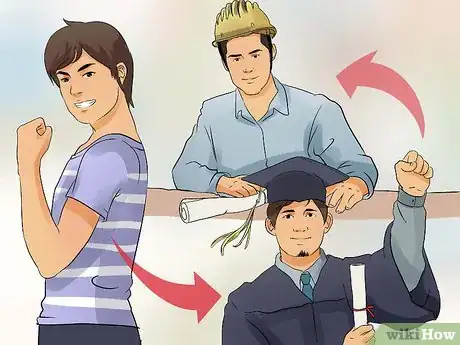


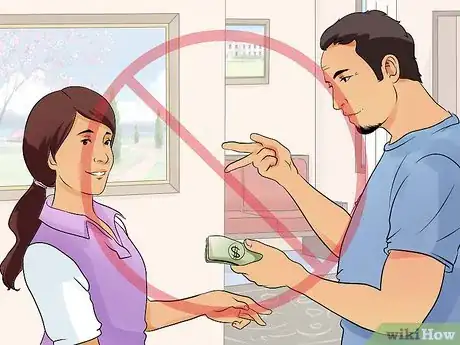
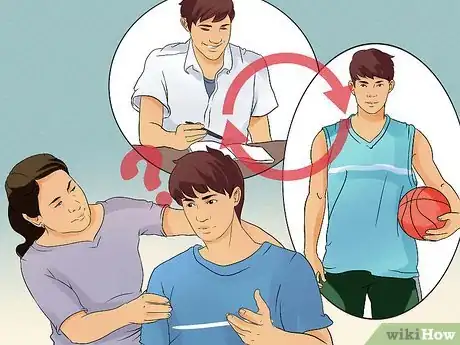
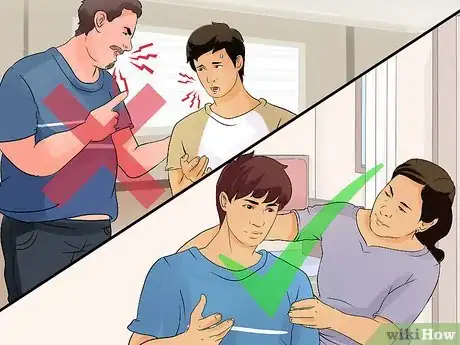
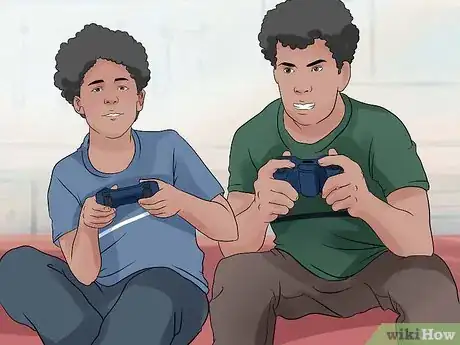







-Step-19-Version-3.webp)





















































